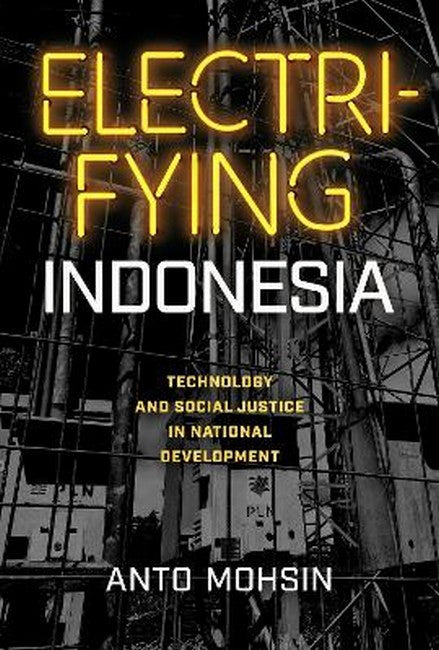Anto Mohsin is an assistant professor in residence in the liberal arts program at Northwestern University in Qatar and an affiliated faculty member of Northwestern University's Science in Human Culture program in the Weinberg College of Arts and Sciences.
Request Academic Copy
Please copy the ISBN for submitting review copy form
Description
List of Illustrations Acknowledgments List of Abbreviations Introduction 1 Late Colonial and Early Postcolonial Electrification 2 The New Order's Patrimonial Technopolitics 3 The Electric Bureaucracy 4 Java-Centrism and the Two Grid Systems 5 Social Knowledge of Rural Life and Energy Uses 6 Rural Electric Cooperatives Conclusion Appendix Notes Bibliography Index
"A groundbreaking study of electrification as nation building in postcolonial Indonesia. Mohsin sheds light on how electrification became bound up with negotiations about the meanings of social justice and the hopes of postcolonial Indonesian society. This book is a welcome addition to the growing STS literature on Southeast Asia."-Suzanne Moon, author of Technology in Southeast Asian History "Mohsin skillfully interweaves the development of the electricity system with the establishment of the state. . . . [Electrifying Indonesia] is deeply researched, well written, and an essential addition to the literature." - Technology and Culture "Excellent. . . . Significantly enriches the field of postcolonial STS. It will reward the specialist of Southeast Asian studies, and indeed any reader interested in the multidimensional interplay of electrification and sociopolitical formations." - H-Net Reviews "Provides rich insights. . . . Fascinating. . . . A fresh intervention to the study of electrification that remains dominated by technocratic and managerial frameworks. Considering the sustainable development challenge of meeting energy for all, Mohsin's book serves as a clear reminder of how intricate such a pursuit is." - Journal of Development Studies "A fascinating account that is both deeply empirical and theoretically engaging. . . . By marrying the analysis of traditional political institutions such as elections, political parties, and bureaucracies with techno-science, [Mohsin] offers new ways to think about political power, authority, and legitimacy. . . . Change[s] how we see the world." - Southeast Asian Studies

